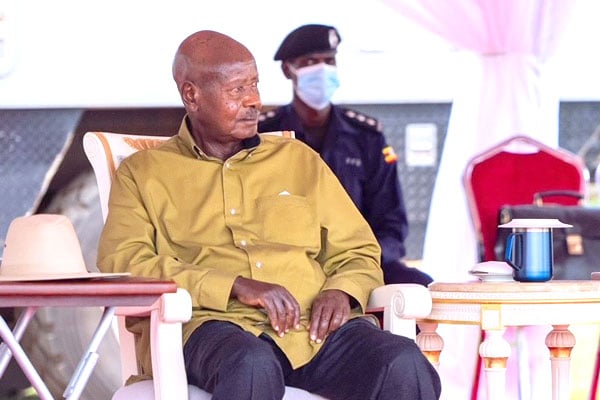Prime
Museveni can only become a King David, not Amin

Rogers Magala
What you need to know:
- Prof AB Kasozi in his book Social Origins of Violence in Uganda, 1964-1985, estimates that Amin's regime claimed between 50,000 and 300,000 lives, while Obote's was responsible for between 500,000 and 800,000 deaths.
Whenever President Museveni denounces Idi Amin, labelling him an 'idiot', it rekindles debates about the parallels and contrasts between these two prominent figures in Uganda's political history. Amin has globally been clustered in a band of brutal leaders like Adolf Hitler who was the mastermind of the Holocaust that aimed at wiping out the Jewish race
Amin’s reign has inspired numerous books and films, reflecting his infamy both in Uganda and globally. Amin's brutal eight-year reign from 1971 to 1979, notorious for human rights abuses, is frequently compared to Museveni's nearly 40-year presidency, albeit with significant distinctions in their political methods and legacies.
Amin's era was a reign of time that never spared the lives of very many notable and highly revered dignitaries. Some of the dignitaries, who were allegedly killed by Amin include Archbishop of the Anglican Church of Uganda Janan Luwum, ministers Charles Oboth Ofumbi, Shaban Nkutu, and Erinayo Oryema.
Recent historical accounts suggest that some of the crimes attributed to Amin, such as the murder of Chief Justice Benedicto Kiwanuka, lack conclusive evidence, raising questions about the accuracy of past accusations.
On October 19, 1969, while attending the Uganda Peoples Congress (UPC) delegates conference at Lugogo indoor stadium, former President Milton Obote was shot in the jaw by Mohammed Sebadduka.
The assassination attempt was attributed to Amin because, at the time, he was at loggerheads with his boss Obote and fears loomed that the former was plotting a coup against latter.
However, it is written in Uganda's Presidents biography that Democratic Party stalwart Benedicto Kiwanuka was the instigator of the botched assassination.
Many accusations against Amin are contestable, including the expulsion of the Asians without compensation.
While Amin's reign is widely condemned, Museveni’s critics are quick to point out similarities between the two leaders and their approach to power.
However, drawing direct comparisons between them overlooks key differences in their political trajectories.
Museveni's political longevity, spanning nearly 40 years, has often drawn biblical analogies, with some comparing his leadership to that of King David, who ruled Israel for four decades.
While Museveni's political rise mirrors David's long journey to kingship, his administration has not been without its share of criticisms, particularly regarding corruption and the centralisation of power.
Prof AB Kasozi in his book Social Origins of Violence in Uganda, 1964-1985, estimates that Amin's regime claimed between 50,000 and 300,000 lives, while Obote's was responsible for between 500,000 and 800,000 deaths.
This reminds me of a scripture in the Bible, 1 Samuel 18:6-8, where women jubilated from every corner of Israel, singing "Saul has killed 1,000 enemies; David has killed 10,000 enemies!"
This song made Saul very angry, because he thought, they were saying David had killed 10,000 times more enemies than Saul did. Hopefully, when a tally of those slain at the hands of the NRA/NRM regime is finally published, Amin's ghost shall not hover in protest just like Saul envied David.
For 40 years, Israel grew into a formidable and revered nation under the leadership of King David. At the end of his current term in 2026, Mr Museveni will have ruled Uganda for 40 years, where he has earned remarkable success.
While President Museveni has made significant strides in leading Uganda, recent events have cast doubt on his commitment to the fight against corruption, especially with the detention of young activists who sought to challenge this scourge.
Rogers Magala is a Law student at Uganda Christian University. [email protected]




